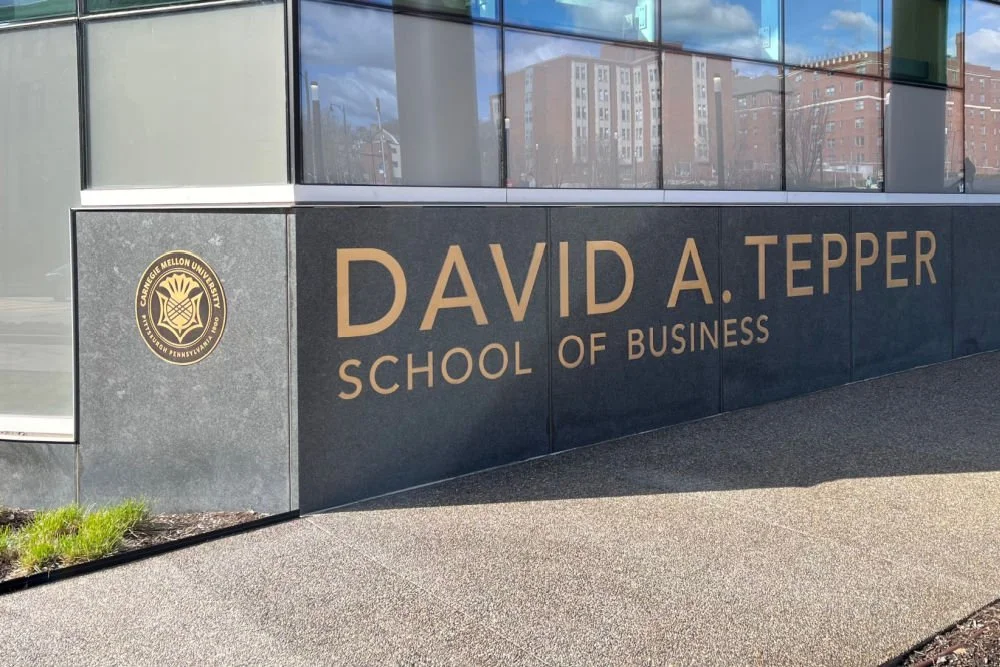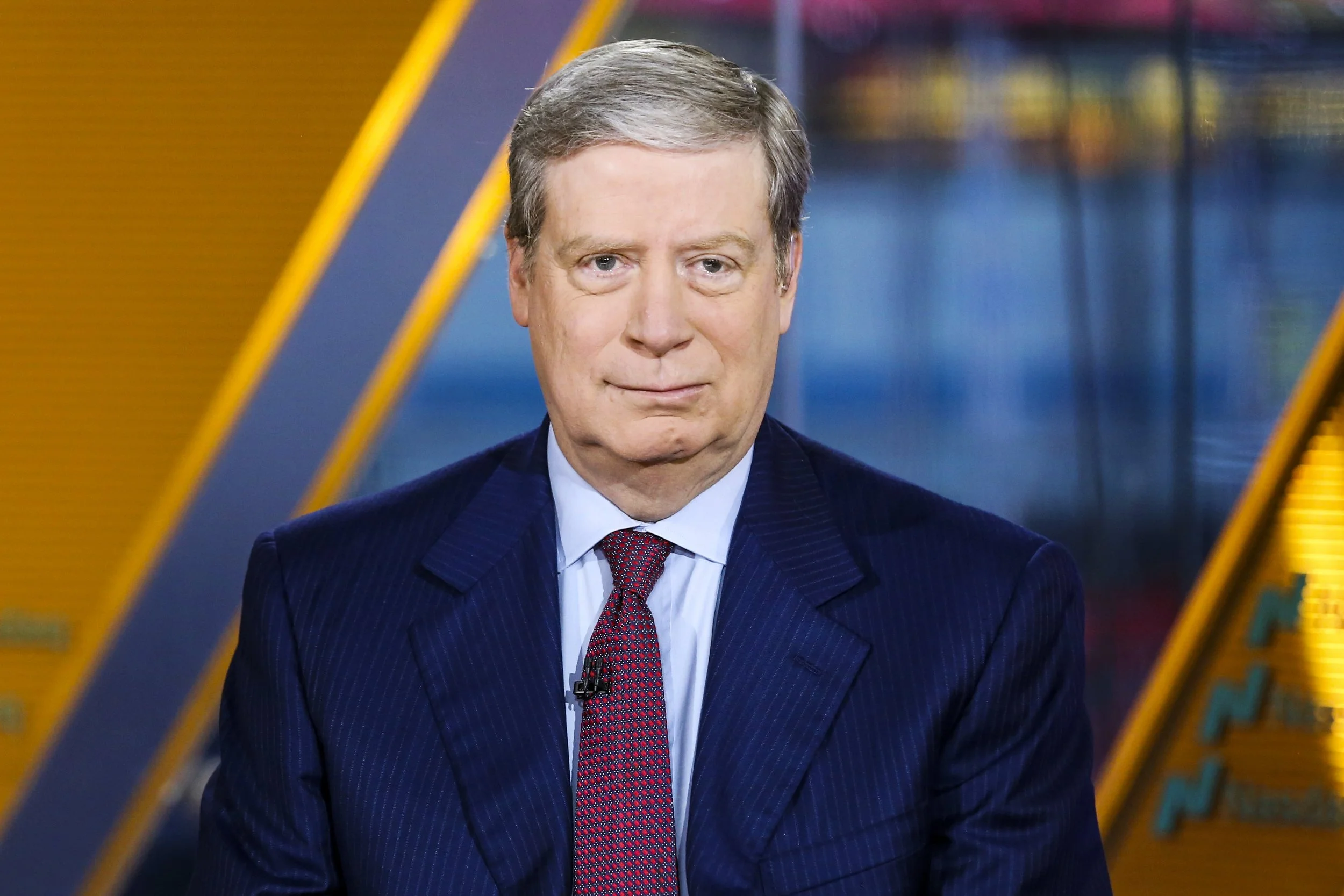In Past Ties Between Leslie Wexner and Jeffrey Epstein, Troubling Questions About Elite Philanthropy
/Maxx-Studio/shutterstock
Accused sex trafficker and convicted prostitution client Jeffrey Epstein is dead, but many questions about his financial ties to business mogul and mega-philanthropist Leslie Wexner live on. Details about their two-decade-long relationship are murky, and the transfers of large amounts of money and high-value property between the businesses and charitable foundations of the two men remain a mystery.
According to a Bloomberg Opinion article by Joe Nocera, the entire corpus of Epstein’s oddly named C.O.U.Q. Foundation came from Wexner, for instance. And just before starting a 13-month prison sentence in 2008, even after Wexner claims to have distanced himself and his foundation from Epstein, Epstein gave Wexner’s YLK Charitable Fund close to $47 million, mostly in the form of Apple stock.
Back in 1996, Wexner appears to have gifted the title to his seven-story, $56 million Upper East Side mansion to Epstein. When Wexner purchased the townhouse in 1989 for $13.2 million, it was then the highest recorded sales price for a Manhattan property. Even after spending millions more renovating it, Wexner never moved in. Instead, he gave it to Epstein. It was only in 2011, according to records, that Epstein transferred the property from a trust connected to both men to a U.S. Virgin Islands entity only he controlled.
Some of Epstein’s infamous parties and alleged crimes took place in this house, which was raided by federal authorities after his recent arrest.
Missing Money, Growing Questions
Wexner and his attorneys are providing information to federal investigators, particularly about tens of millions of dollars that he says Epstein misappropriated from him, according to the Wall Street Journal.
The president of the Wexner Foundation, Rabbi Elka Abramson, told Inside Philanthropy that Wexner is not currently giving any press interviews.
But the billionaire business mogul makes clear in two notes he published on the Wexner Foundation website that he is again trying to distance himself from Epstein, whose attorneys in 2008 negotiated a cushy plea deal in which he admitted guilt to participating in prostitution with a girl under age 18, but served only 13 months in a county jail, from which he was released to work in his West Palm Beach office 12 hours a day. Last month, Epstein was charged by federal prosecutors with sex trafficking of girls as young as 14, and sex trafficking conspiracy. Documents long suppressed as a condition of his 2008 plea agreement were released by federal prosecutors, exposing details of his involvement with the rich and the famous, including Wexner, other super-rich businessmen, and President Donald J. Trump. Epstein faced up to 45 years in prison.
On August 10, the day after those documents were unsealed, Epstein hanged himself in his New York City jail cell.
With his suicide, Epstein has left behind scores of victims, and in addition to many unanswered questions, a legacy of greed, rape of girls, and ethical questions about the way the business of philanthropy is conducted among the super-wealthy.
In the case of Wexner and Epstein, clearly, social ties and perceptions—and an “in-group bias,” according to experts in philanthropy ethics—were central.
For two decades starting in the mid-1980s, Epstein was the billionaire’s personal finance manager and had power of attorney. Epstein claimed to take on clients who were worth at least $1 billion. Yet Wexner was the only client ever publicly named.
Wexner recently wrote in an August 8 letter addressed to those associated with the Wexner Foundation that Epstein “misappropriated vast sums of money from me and my family.” By vast sums, he means tens of millions of dollars.
When Epstein was first accused of hiring underage girls to perform sexual favors for him and his friends, in the early 2000s, “he vehemently denied it,” Wexner wrote an August 8th statement.
“But by early fall 2007, it was agreed that he should step back from the management of our personal finances. In that process, we discovered that he had misappropriated vast sums of money from me and my family. This was, frankly, a tremendous shock, even though it clearly pales in comparison to the unthinkable allegations against him now,” wrote Wexner.
Transfers Between Foundations
Yet in 2008, a new Wexner private foundation called YLK Charitable Fund accepted close to $47 million in donations from Epstein’s C.O.U.Q. Foundation and his business, according to the Charitable Fund’s 2008 Form 990. YLK’s only two trustees were Wexner’s wife, Abigail Wexner, and a longtime employee and trustee of the Wexner Foundation, Peggy Upland. YLK Charitable Trust neither received nor made any donations in 2009, and in 2010, announced it would transfer all of its assets to the Wexner Family Charitable Fund.
In 2017, the most recent year for which an IRS filing is publicly available, the Wexner Family Charitable Fund distributed $67 million. Its largest donations were to the Columbus Ohio-based Nationwide Children’s Hospital Foundation ($20 million), Columbus Downtown Development Corporation ($11 million), Harvard University ($11 million) and the Wexner Foundation ($11 million). The Jewish Federation of Columbus, Ohio received a donation of just over $3 million, and the Jewish Federations of North America received $500,000. Harvard University’s Jewish student group Hillel also received $500,000.
Epstein was portrayed in a 2002 New York magazine article as the quintessential “international man of mystery,” and Wexner had clearly bought into his spiel, giving him nearly complete access to the billionaire’s financial accounts. A recent Vanity Fair piece portrays Wexner as a lonely, emotionally vulnerable man at that time in his life.
Wexner founded L Brands, formerly known as Limited Brands, which owned clothing chains The Limited, Express, Lane Bryant and others, and went public in 1969. Many of its original brands were spun off into their own public companies, but L Brands continues to own lingerie company Victoria’s Secret and personal care retailer Bath & Body Works.
He is also founder and chairman of the Wexner Foundation, through which he has been arguably the biggest investor in funding current and future Jewish leadership in America. The foundation does so by underwriting rabbinical, cantorial and graduate studies for future Jewish educators and clergy, and for promising lay leaders through the Wexner Heritage Program, an intensive two-year commitment to studying the ideas and events that have informed the Jewish past and present, and international cohort-wide semi-annual seminars in Israel and at luxury resorts in the American West. Wexner is also a major donor to institutions in his home area of New Albany and Columbus, Ohio, including to his alma mater, Ohio State University.
Wexner, now 81, lives in New Albany, Ohio. This month, Forbes magazine valued his fortune at $4.6 billion—down from $7.6 billion in 2015, with the slump likely attributable to downturns in L Brands’ share value.
A Failure of Due Diligence—and Ethics
Why did someone that successful in business and philanthropy put a man like Jeffrey Epstein in charge of the Wexner family’s personal finances? Epstein is a man who never graduated from any college, and never attended an Ivy League university despite the fact that he liked to wear Harvard sweatshirts, and certainly didn’t go to business school or have any other financial industry training or licensing.
Wexner engaged in ethically questionable behavior by failing to conduct due diligence into Epstein’s background—and lack thereof, says Patricia Illingworth, a professor in the department of philosophy at Northeastern University’s school of business and law school, and senior fellow of the Carr Center for Human Rights Policy at Harvard’s Kennedy School of Government.
Wexner had “a due diligence responsibility, especially when we’re talking about this kind of mega-philanthropy, to make sure that the people you’re working with endorse the very highest values. If he had done that, he would have learned that Epstein was not, in fact, of the very highest moral character,” she told Inside Philanthropy in an interview.
Wexner philanthropy has produced a lot of good—and he deserves moral praise for that,” she added. “I am not judging his character, but the process he followed—failure to act with due diligence.”
Wexner trusted Epstein after he was endorsed by one or two of Wexner’s business-titan confederates. And trust is what makes philanthropy go ‘round, says Kenneth Bigel, associate professor of finance and business ethics at Touro College and adjunct associate professor of business ethics at NYU Stern School of Business.
“You have to wonder what Wexner was getting out of this,” said Illingworth, noting that he was portrayed as emotionally vulnerable in the recent Vanity Fair article. “I just don’t know.”
Illingworth is writing a book on ethics, philanthropy and human rights, and previously published a book on the role of social capital in global philanthropy. “Why would he put so much trust in the hands of somebody who didn’t deserve it, not professionally or morally? Why didn’t he do due diligence to see if Epstein could handle this? That, to me, seems like an ethical problem.”
“Business and life revolve around trust,” Bigel told Inside Philanthropy. “If we had to rely on lawyers to get everything done transactionally, the world would stop. Wexner trusted a man who wasn’t trustworthy.”
The ethical problems at issue in the Wexner-Epstein relationship “are greed, deception, overpromising, and the exploitation of people’s hopes,” Bigel said. “Ethics is not a matter of logic, it’s a matter of emotion. Decisions we make, especially regarding the purse and love, are emotional. Wexner must have been caught up emotionally with this guy, must have talked about how they would help each other. Money is seductive.”
Illingworth encourages philanthropists and philanthropies to adhere to ethics guidelines like those put forward by the United Nations in its Guiding Principles on Business and Human Rights. They require businesses to conduct due diligence so that their products, whatever they may be, do not harm human rights at any point in their suppliers’ production of materials, creation of the actual product, or its distribution and use. “Foundations are enterprises like businesses, and should feel obligated to adhere to similar guidelines.”
“Not-for-profits could have these sorts of responsibilities,” she said. “They can think beyond just putting the money into a foundation, but think through the implications” of their funding. In the case of Wexner’s transfers of money and property with late Epstein, “you don’t see any of that here.”
But, says Bigel, the kind of betrayal Wexner experienced with Epstein will surely happen to another philanthropist before long. “These things will happen again and again in years to come. The only thing philanthropies can do is to vet their trustees better.”







































